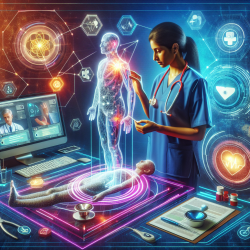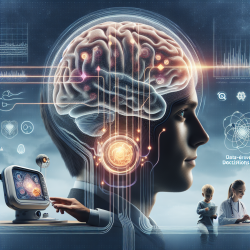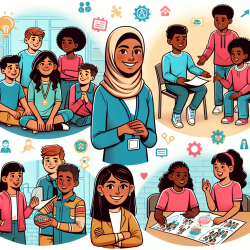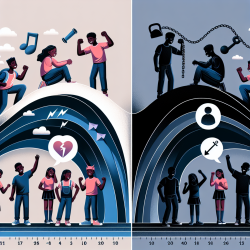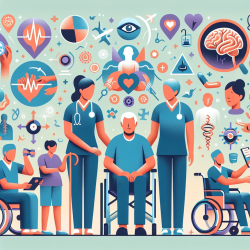Artificial Intelligence (AI) is rapidly transforming healthcare education, bringing significant changes to medical simulations. This technology's potential to revolutionize training methods can immensely benefit practitioners, particularly those providing online therapy services like TinyEYE. The research article "Artificial Intelligence and Healthcare Simulation: The Shifting Landscape of Medical Education" offers valuable insights into how AI can enhance healthcare simulations. Here's how practitioners can leverage these findings to improve their skills and provide better care.
Key Findings from the Research
The research highlights several ways AI is impacting healthcare simulation:
- Enhanced Diagnostic Accuracy: AI-driven simulations help practitioners improve diagnostic skills by allowing them to apply diagnostic decision support systems (DDSS) in a controlled environment. This leads to better diagnostic accuracy and safer triage decisions.
- Improved Communication Skills: Simulated conditions using AI can enhance communication with patients, leading to better patient outcomes and more effective rapid response teams.
- Personalized Learning: AI allows for more personalized and adaptive learning experiences, providing customized coaching and evaluations that cater to individual needs.
- Scalability and Accessibility: AI-driven simulations offer scalable solutions, making high-quality training accessible to more practitioners without a proportional increase in faculty and resources.
Implementing AI in Your Practice
To incorporate these AI-driven advancements into your practice, consider the following steps:
- Stay Informed: Keep up with the latest research and developments in AI and healthcare simulation. This will help you understand the potential applications and benefits of AI in your practice.
- Utilize AI Tools: Integrate AI-driven diagnostic tools and simulations into your training regimen. These tools can help you refine your diagnostic skills and improve patient communication.
- Engage in Continuous Learning: Participate in AI-driven training programs and simulations regularly. This will ensure you stay updated with the latest techniques and best practices.
- Collaborate with Peers: Work with other practitioners to share insights and experiences with AI-driven simulations. Collaboration can lead to better understanding and implementation of these technologies.
Encouraging Further Research
While the benefits of AI in healthcare simulation are evident, ongoing research is crucial. By staying engaged with current studies and contributing to new research, practitioners can help shape the future of AI in medical education. This collaborative effort will ensure the continuous improvement of training methods and ultimately enhance patient care.To read the original research paper, please follow this link:
Artificial Intelligence and Healthcare Simulation: The Shifting Landscape of Medical Education.
